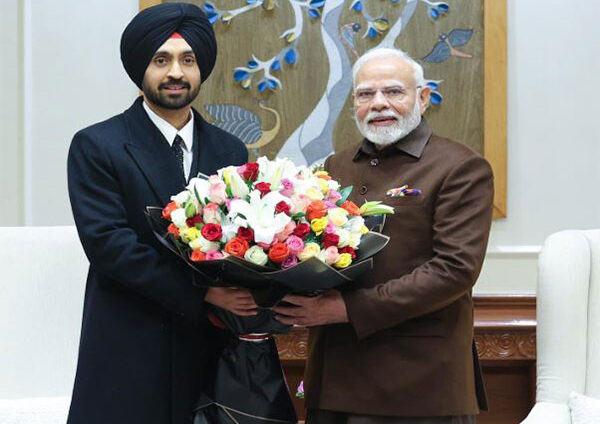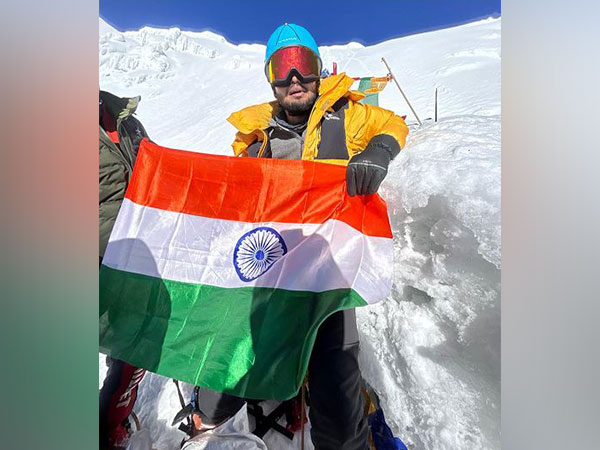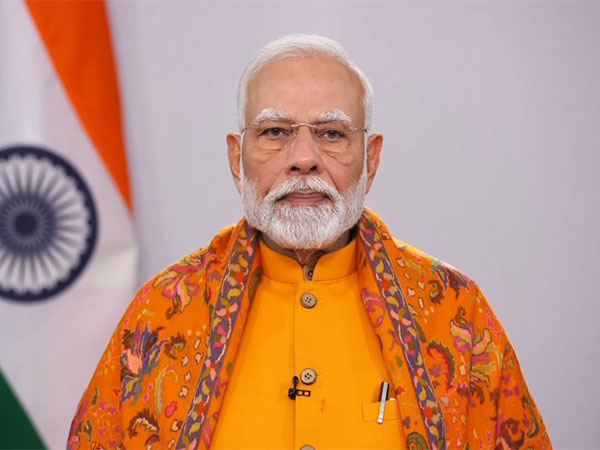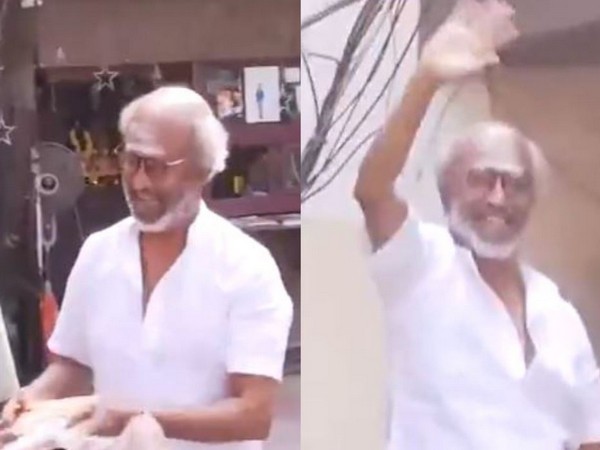As we enter the year 2025 with more challenges and opportunities, it is a good time to take a look at how India’s foreign policy progressed in the year 2024 and the major developments on that front.
2024 served as the year where India’s international efforts aimed at global peace and prosperity found recognition on the global stage.
From the highest awards by foreign countries being conferred to PM Modi to indigenous Indian government policies being adopted across the world by global partners of India, the year saw how sustained efforts consistently worked upon, presenting India as a firebrand of trust, and achieving its aim of being a “Vishwabandhu” and “Vishwamitra”.
Prime Minister Narendra Modi’s swearing-in ceremony after winning a historic third term also reaffirmed India’s commitment to its ‘Neighbourhood First’ policy and ‘SAGAR Vision’ as the heads of states of Sri Lanka, Bangladesh, Maldives, Mauritius, Bhutan, Nepal and Seychelles attended the ceremony.
The Prime Minister emphasized that in his third term, India will continue to work for the peace, progress and prosperity of the region in close partnership with the countries, even as it pursues its goal of ‘Viksit Bharat’ by 2047.
In this context, he called for deeper people-to-people ties and connectivity in the region. He further added that India would continue to amplify the voice of the Global South in the international arena.
China
The biggest development for India’s foreign policy last year was reaching an agreement with China on patrolling arrangements along the Line of Actual Control (LAC).
This came after a long border standoff triggered following Chinese aggression at the border in June 2020.
Following this, Prime Minister Modi and Chinese President Xi Jinping met after five years on the sidelines of the BRICS Summit in Kazan, Russia. PM Modi reaffirmed the need to maintain peace and tranquillity on the border.
The 23rd Meeting of the Special Representatives of India and China, was also held in Beijing in December, with discussions focussed on maintaining peace and tranquillity along the border. The meeting was attended by Ajit Doval, National Security Advisor (NSA) and Wang Yi, China’s Foreign Minister and Member of the CPC Central Committee.
Pakistan
In a first since 2018, External Affairs Minister S Jaishankar visited Pakistan to attend the SCO Summit, however, no discussions took place on the bilateral ties between the two countries, despite visible expectations from the Pakistani side.
India, however, has continued with its stance that ‘talks and terror can’t go hand in hand’. EAM Jaishankar, at multiple occasions, pointed out to the challenges of dealing with a neighbour which perpetrates terrorism at “industry level.”
Responding to the question posed on Pakistan in the Parliament, Jaishankar said, “In terms of improving ties with Pakistan, like any other neighbour, we would like to have good ties. But like with any other neighbour, we would also like to have ties free of terrorism. So, this has been the position of the government. We have made it very clear that it is for the Pakistani side to show that they are changing their behaviour of the past and that if they don’t, of course, there are implications for the relationship and for them. So, I think the ball is very much in Pakistan’s court in this regard.”
Bangladesh
While the year started with a re-election of Sheikh Hasina — a long-time ally of India — as the Prime Minister of Bangladesh, by the time of August, student protests in the country turned into a violent uprising which eventually led to Hasina’s ouster. This brought an interim government led by the Nobel Laureate Muhammed Yunus.
However, following that, there have been multiple attacks on religious minorities, especially Hindus and their places of worship. India has repeatedly raised its concerns on the issue and called on the interim government to ensure the protection of minorities.
The situation was further exacerbated after a Hindu priest Chinmoy Das was arrested by Bangladesh authorities on sedition charges.
Prime Minister Modi in a call with Muhammad Yunus, reaffirmed India’s support for a democratic, stable, peaceful and progressive Bangladesh. He emphasised India’s commitment to supporting the people of Bangladesh through various development initiatives. Prime Minister also underlined the importance of ensuring the safety and protection of Hindus and all other minority communities in Bangladesh.
The protests which saw the ouster of Sheikh Hasina had resulted into violence against religious minorities in Bangladesh, and the subsequent arrest of Chinmoy Das that further deteriorated the issue in the country.
Recently, Foreign Secretary Vikram Misri in December visited Bangladesh. During this, he expressed India’s continued support for the people of Bangladesh. The FS also expressed India’s concerns regarding the situation of minorities.
Bhutan
India and Bhutan saw flourishing ties with visits by both the Indian and Bhutanese top echelons to their countries. India’s steadfast support for Gelephu Mindfulness City, among other initiatives was also reiterated.
Bhutan PM Tshering Tobgay visited India in March 2024. This was followed by Prime Minister Modi’s visit to Bhutan.
In March, PM Modii was conferred the Order of the Druk Gyalpo, Bhutan’s highest civilian decoration by the King of Bhutan. Prime Minister Modi became the first foreign leader to be given this prestigious award which recognises contribution to strengthening India-Bhutan friendship and his people-centric leadership.
Maldives
The arrival of Maldivian President Muizzu initially posed a challenge for India, as Muizzu ran his whole presidential campaign on an ‘India Out’ plank. Coming to power, Muizzu exited from several engagements with India.
Muizzu strongly opposed the presence of Indian troops in Maldives. Upon subsequent discussions, India decided to replace the personnel with professional civilians to perform medvac services there.
The derogatory remarks by some of Muizzu’s ministers against Prime Minister Modi led to strong opposition from India and led to diplomatic row between New Delhi and Male.
However, India’s persistent efforts on diplomatic channels and long-standing ties with the island nation, slowly brought the ties back on track.
Mohammed Muizzu attended PM Modi’s swearing-in ceremony and came on an official visit to India in October. Calling India as Maldives’ “closest ally” he thanked New Delhi for financial support to Male amid economic hardships. Several agreements were signed between the two nations, including the start of FTA talks.
Middle East
India continued with the deepening of its engagements with the Middle East. PM Modi visited several Middle Eastern nations; UAE, Qatar, and Kuwait in 2024 and welcomed several leaders names from the region.
During PM Modi’s visit, India and the UAE saw several high-level delegations visit the two countries.
From the inauguration of the BAPS Hindu Temple to the launch of Bharat Mart and an agreement on inter-linking domestic debit/credit cards – RuPay (India) with JAYWAN (UAE), the two countries saw development across all fronts.
A major achievement for India this year was getting the death sentence of ex-naval officers in Qatar remitted, and the personnel being brought back to India. This diplomatic triumph was followed by the Prime Minister’s visit to Qatar to thank
Latin America and Africa
The outreach to African countries saw momentum, a year after under the G20 under India’s presidency saw African Union became a permanent member of the grouping.
In the spirit of forging deeper ties with Africa, the President of India, Droupadi Murmu’s state visits to three African countries namely Algeria, Mauritania and Malawi took place in October. This was the first-ever visit by an Indian Head of State to the three African nations.
PM Modi’s visit to Brazil saw the Brazilian leadership commending Indian efforts during India’s G20 Presidency and the continuation of Indian initiatives.
In a historic visit to Guyana, PM Modi received several national honours and attended various events to strengthen relations. He held meetings with the PMs of Antigua and Barbuda, Grenada, Trinidad and Tobago, Dominica, Bahamas, Barbados, Saint Lucia, Presidents of Guyana and Suriname
A Decade of Act East Policy
In his address at the ASEAN Summit, PM Modi reiterated India’s support for ASEAN Unity, ASEAN Centrality and ASEAN Outlook on the Indo-Pacific. Calling the 21st century as the Asian century, he noted that India-ASEAN ties were critical to guiding Asia’s future.
Emphasizing the vibrancy of India’s Act East Policy, PM noted that in the last 10 years, India-ASEAN trade had doubled to over USD 130 billion.
In keeping with the Chair’s theme of “Enhancing Connectivity and Resilience”, the PM announced a 10-point plan which includes people-centric activity, organise ASEAN-India Women Scientists Conclave under ASEAN-India Science and Technology Development Fund; Enhancing Disaster Resilience for which India would make available USD 5 million.
Visits to Singapore and Brunei also showed India’s commitment to deepening ties in the region.
Prime Minister of Laos, Siphandone thanked the Prime Minister for India’s flood relief assistance provided to Lao PDR in the aftermath of Typhoon Yag- a step which reiterates Idnia’s role as the first responder.
United States
The ties between India and the United States progressed with several developments on varied fronts, including the agreement on semiconductors and the USD 4 billion deal for acquiring MQ-9B Drones.
PM Modi participated in the Quad Meeting in Delaware. The meeting saw the leaders reiterating that the Quad remains a “force for global good.”
The Quad leaders recommitted to working in partnership with Pacific island countries to achieve shared aspirations and address shared challenges. The Quad nations also affirmed that, in consultation with partners, they will work collectively to address attempts to unilaterally undermine the integrity of the UN, its Charter, and its agencies.
An area of concern remained the alleged assassination attempt at Khalistani terrorist Gurpatwant Singh Pannun. India has formed a committee to probe the matter and the US has called Indian ‘satisfying’. New Delhi, however, has also raised concerns about Pannun issuing repeated threats to India with no legal action against him.
The end of the year saw a change in US administration as Donald Trump is set to take over the presidency later this month. But, the India-US ties are expected to continue to grow as Trump and Prime Minister Modi also enjoy a great camaraderie, and there seems to be a bipartisan consensus for working towards strong India-US ties.
Russia and Ukraine
Russia is one of the most steadfast allies of India. PM Modi visited Moscow for a two-day official visit at the invitation of Russian President Putin to attend the 22nd India-Russia Annual Summit. The visit saw several positive developments and further cemented India-Russia ties.
PM Modi was also conferred with Russia’s highest national award “The Order of St. Andrew the Apostle” for his contribution to fostering India-Russia ties. From a warm hug to driving an electric car for ‘dost’ PM Modi, the chemistry between the leaders hogged the limelight.
Later in the year, PM Modi again visited Kazan, Russia for the BRICS Summit.
India has repeatedly asserted that the solution to the conflict can’t be reached on the battlefield, but only through dialogue and diplomacy. New Delhi has also affirmed its readiness to contribute in resolving the issue between the two sides.
In a major development, PM Modi also visited Ukraine, the first by an Indian PM. This marked a significant moment, as the visit to both Moscow and Kyiv, came at a point when the two nations were embroiled in a nearly three-year-long conflict.
“India was never neutral, we have always been on the side of peace,” PM Modi told Zelenskyy. He said that India was ready to play an active role in the path to peace and progress.
PM Modi also presented four BHISHM (Bharat Health Initiative for Sahyog Hita & Maitri) Cubes to the Government of Ukraine to help in the expeditious treatment of the injured and contribute to saving precious lives.
Cultural Connect
Elements of Indian culture found recognition on a global stage. During PM Modi’s visit to Laos, ‘Phra Lak Phra Ram’, the Lao adaption of Ramayana was showcased with great fervour. The Prime Minister also witnessed the adaptation of Indian elements such as the spread and influence of Sanskrit shlokas which were chanted and performed by the local residents and diaspora members during several of his international trips this year such as those to Guyana, Russia and Brazil.
Another significant development was the popularity of indian sports like Kabaddi in countries like Poland, with whose players PM Modi interacted during his visit to Poland this year.
In February, Thai Deputy PM Nukara visited India and expressed appreciation to India for sending the Holy Relics of Lord Buddha together with his two disciples, Arahata Sariputra and Arahata Maudgalyayana to Thailand for exposition which will give an opportunity to millions of Thai nationals to pay reverence.
The establishment of the Thiruvalluvar Chair of Tamil Studies at the University of Houston, US by PM Modi is another testimony to the growing impact of Indian culture abroad.
During his visit to the UAE, PM Modi thanked UAE President Mohammed bin Zayed Al Nahyan for giving approval for the BAPS Hindu Mandir, saying that it reflects his love and respect for India and couldn’t have been possible without his love and support.
The BAPS Hindu Mandir has emerged as a testament to architectural brilliance and cultural significance in the heart of the region, marking the first stone Hindu temple in the area, proudly standing as the largest in West Asia.
While inaugurating the new campus of the Nalanda University in India, 17 Countries joined in this endeavour – Australia, Bangladesh, Bhutan, Brunei Darussalam, Cambodia, China, Indonesia, Laos, Mauritius, Myanmar, New Zealand, Portugal, Singapore, South Korea, Sri Lanka, Thailand, and Vietnam. Ambassadors of these countries travelled to Nalanda to participate in the inaugural ceremony.
Diaspora Connect
During Prime Minister Narendra Modi’s state visits, engagements with the Indian Diaspora have become sine qua non.
Events such as Hala Modi in Kuwait and, Alhan Modi in Abu Dhabi, or the address in New York, saw enthusiastic turnout by the members of the Indian community.
Throughout his several visits, PM interacted with the diaspora in the US, Austria, UAE, Kuwait, Guyana, and Russia amongst other countries.
The call for “Viksit Bharat” given through various community and diaspora engagement programs by India’s top brass- President Murmu, PM Modi and the External Affairs Minister, highlighted the government’s priority of actively involving the diaspora in the grand scheme of nation-building.
Indian Policies, Global Platforms
India’s digital public infrastructure was at the centre of the global limelight in 2024.
With the first UPI payment done at the Eiffel Tower in France, India’s homegrown tech and policies found takers across the world.
Prime Minister Narendra Modi launched UPI services for UAE, Mauritius and Sri Lanka and called UPI- Uniting Partners with India.
The significant impact of this measure in India’s foreign policy will see benefits translated to Sri Lanka and Mauritius digital transformation will get a boost, local economies will witness positive change and tourism will be promoted.
Other countries which have adopted UPI include Nepal, Bhutan and Singapore.
India at the Global Fora
The year started with India’s participation at the G7 Summit in Apulia, Italy as special invitee.
During the G7 Summit, PM spoke of India’s AI Mission premised on “AI for All”, Prime Minister Modi emphasised that this technology should be aimed at fostering progress and well-being of all. He underlined that with this broader objective in mind, India was fostering international collaboration as a founding member of the Global Partnership for AI.
The Prime Minister elaborated on India’s energy transition pathway noting that its approach was based on availability, accessibility, affordability and acceptability. He mentioned that India was working towards achieving the target of Net Zero by 2070 and highlighted the globally acclaimed India’s Mission LiFE.
Bringing global attention to India, in January, the Vibrant Gujarat summit, saw the participation of various international delegations along with PM meeting the PM of the Czech Republic, Mozambique, and Timor-Leste. UAE President Sheikh Mohamed bin Zayed Al Nahyan was the chief guest at the event, further underscoring the deepening of India’s engagements with the Gulf nations.
During the World Government’s Summit, PM Modi highlighted the efforts made by India to bring development concerns facing the Global South to the centre stage of global discourse. He highlighted India’s transformative reforms based on the mantra of “Minimum Government, Maximum Governance”.
PM Modi also highlighted the special attention towards the concerns of the Global South Even during India’s G20 presidency. He mentioned setting up a Social Impact Fund to extend the benefits of India’s digital public infrastructure to countries in the Global South.
The year was jam-packed with meetings held by the Prime Minister with global leaders, these included one-on-one meetings as well as those taken during the sidelines of global events such as the G20 Summit in Brazil, the UNGA session or the BRICS Summit in Russia.
PM Modi called upon BRICS to proactively push for global governance reforms. Recalling the Voice of Global South Summits hosted by India during its G-20 Presidency, he stressed that the group must give primacy to the concerns of the Global South. The Prime Minister noted that the regional presence of the New Development Bank including in GIFT City, India, has created new values and impacts. He underlined the need to prioritise small and medium-scale industries. He expressed that the BRICS Startup Forum initiated by India which is to be launched this year would add significant value to the BRICS economic agenda.
The Prime Minister elaborated on the recent green initiatives undertaken by India including the International Solar Alliance, Coalition for Disaster Resilient Infrastructure, Mission LIFE and Green Credit initiative announced during COP28. He invited BRICS countries to join these initiatives.
This saw countries such as Paraguay, Moldova and Armenia joining the International Solar Alliance this year- a testimony to increasing international trust in India led endeavours.
India’s impact was felt in G20 too where PM Modi welcomed Brazil’s decision to take forward sustainable development priorities underscored by India during the Summit in Delhi 2023. He further spoke about the global initiatives taken by India, such as the International Solar Alliance, Coalition for Disaster Resilient Infrastructure, Mission LiFE, One Sun One World One Grid, and Global Biofuel Alliance to foster a sustainable planet.
Calling for giving primacy to the sustainable development needs of the Global South, particularly the Small Island Developing States, the Prime Minister urged countries to support the Global Development Compact announced by India at the third Voice of the Global South Summit.
At the United Nations, PM Modi called for balanced regulations to promote safe and responsible use of technology, noting that India is open to sharing its digital public infrastructure for the greater public good. He also underlined India’s commitment to “One Earth, One Family, One Future” as a guiding principle.
During his address to the Guyanese Parliament, the Prime Minister noted that India’s mantra of ‘Humanity First’ inspires it to amplify the voice of the Global South, including at the recent G-20 Summit in Brazil. Conveying India’s steadfast support to the Caribbean region, he thanked President Ali for hosting the 2nd India-CARICOM Summit.
Underscoring India’s deep commitment to further strengthening India-Guyana historical ties, he stated that Guyana could become the bridge of opportunities between India and the Latin American continent.
Trade Fronts
India saw the signing and progress on multiple trade agreements in 2024. The most significant one was the Trade and Economic Partnership with EFTA countries — the bloc of Switzerland, Iceland, Norway and Liechtenstein.
On the other hand, negotiations on India-European Union (EU) Free Trade Agreement (FTA) negotiations and the India-UK FTA negotiations continued this year as well.
At the state levels, Ministers such as MP CM Mohan Yadav had visits to countries like UK and Germany which raised significant investments for the country. The role of centre-state collaboration proved fruitful in taking forward India’s foreign policy pritorities.
Awards and Recognitions
PM got Russia’s highest state award- the Order of St. Andrew and became the first Indian leader to be conferred with this award. The order was presented to the Prime Minister for his distinguished contribution to the development of a privileged strategic partnership between Russia and India and friendly ties between the two countries.
He also received Kuwait’s highest civilian award ‘The Order of Mubarak Al Kabeer’.
In Guyana, he received the country’s ‘Order of Excellence,’ for his “visionary statesmanship, for championing the rights of developing countries on the global stage, for exceptional service to the global community and for his commitment to strengthening India-Guyana relations.”
The Commonwealth of Dominica conferred its highest national honour, the Dominica Award of Honour, upon PM Modi in recognition of his efforts during the COVID-19 pandemic.
In Nigeria, he was honoured with the Order of the Niger (GCON). The award citation noted that under PM’s visionary leadership, India has been positioned as a global powerhouse & his transformative governance has fostered unity, peace and shared prosperity for all.
Overall, the year saw India’s mettle recognised across the world, even though challenges remain on some fronts, particularly in Bangladesh and China.
Foreign Minister Jaishankar, recently, reflected on India’s approach towards foreign policy and affirmed the need to think “big, long and smart,” while striving for ‘deeper engagements’.
Moving forward, we saw the implementation of the outlined plan of action for India’s foreign policy, as mentioned by EAM Jaishankar during a magazine launch event earlier in December
“I think we have to do very much more with the world. I think it’s for the good of this country that our own progress and development will accelerate with a deeper engagement with the world. So my, my sense for a foreign policy ahead would really be to think big, to think long, but to think smart,” Jaishankar said. (ANI)









